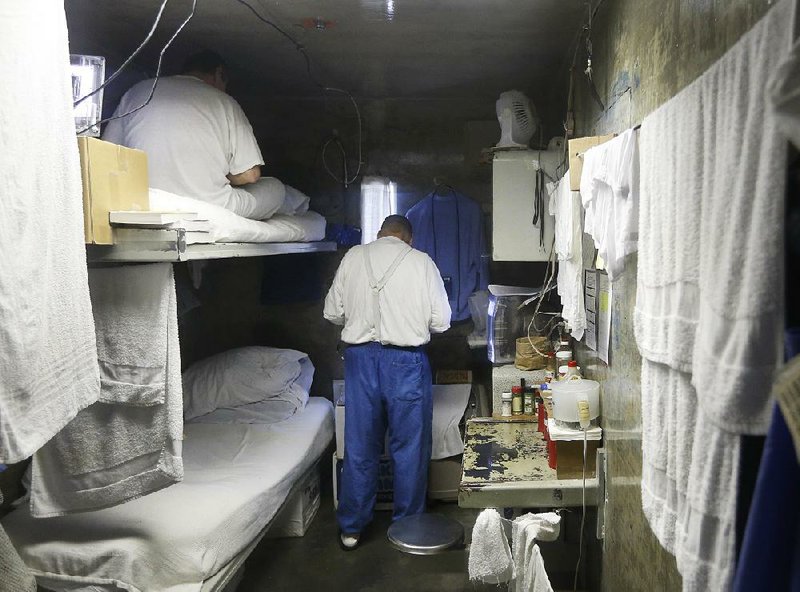SACRAMENTO, Calif. -- California will reconsider life sentences for up to 4,000 nonviolent third-strike criminals by allowing them to seek parole under a ballot measure approved by voters two years ago, according to court documents obtained Thursday by The Associated Press.
The state will craft new regulations by January to include the repeat offenders in early release provisions. Gov. Jerry Brown also will not appeal a court ruling that the state is illegally excluding the nonviolent career criminals from parole under the 2016 ballot measure he championed to reduce the prison population and encourage rehabilitation.
The state parole board estimates that between 3,000 and 4,000 nonviolent third-strikers could be affected, corrections department spokesman Vicky Waters said Thursday, "but they would have to go through rigorous public safety screenings and a parole board hearing before any decision is made."
It's the second such loss for the Democratic governor, who leaves office days after the new rules are due. Another judge ruled in February that the state must consider earlier parole for potentially thousands of sex offenders. The administration is fighting that ruling, which undercuts repeated promises that Brown made to voters to exclude sex offenders from earlier release.
Prosecutors warned throughout the Proposition 57 campaign that nonviolent third-strikers would unintentionally fall under the measure's constitutional amendment, said California District Attorneys Association spokesman Jennifer Jacobs.
"To fix this they're going to have to go back to the people for a vote, which can't even happen for another two years," she said.
Brown will not appeal last month's ruling by a 2nd Appellate District three-judge panel in a Los Angeles County case.
"There is no question that the voters who approved Proposition 57 intended [inmates] serving Three Strikes indeterminate sentences to be eligible for early parole consideration," the appeals court ruled, adding that, "There is strong evidence the voters who approved Proposition 57 sought to provide relief to nonviolent offenders."
The administration first argued that they were ineligible because they face indeterminate life sentences and later added that "public safety requires their exclusion." The appeals court found that officials were "devising an argument ... that is at war" with the measure's language.
Michael Romano, director of the Stanford Three Strikes Project, called the administration's decision to comply "monumental" and "one of the biggest decisions on sentencing policy in the Brown administration."
Among the 4,000 inmates he estimated will be eligible for parole are clients serving life terms for stealing a bicycle, possessing less than half a gram of methamphetamine, stealing two bottles of liquor or shoplifting shampoo, said Romano, whose project represented third-strike inmates in several appeals.
They are disproportionately black, disproportionately mentally ill and statistically among the least likely to commit additional crimes, said Romano, who has studied the issue.
He cited corrections department data on more than 2,200 third-strikers who were paroled under a 2012 ballot measure that allowed most inmates serving life terms for relatively minor third strikes to ask courts for shorter terms. Less than 11 percent returned to prison by October 2016, the latest data available, he said, compared with nearly 45 percent of other prisoners.
A Section on 10/19/2018
